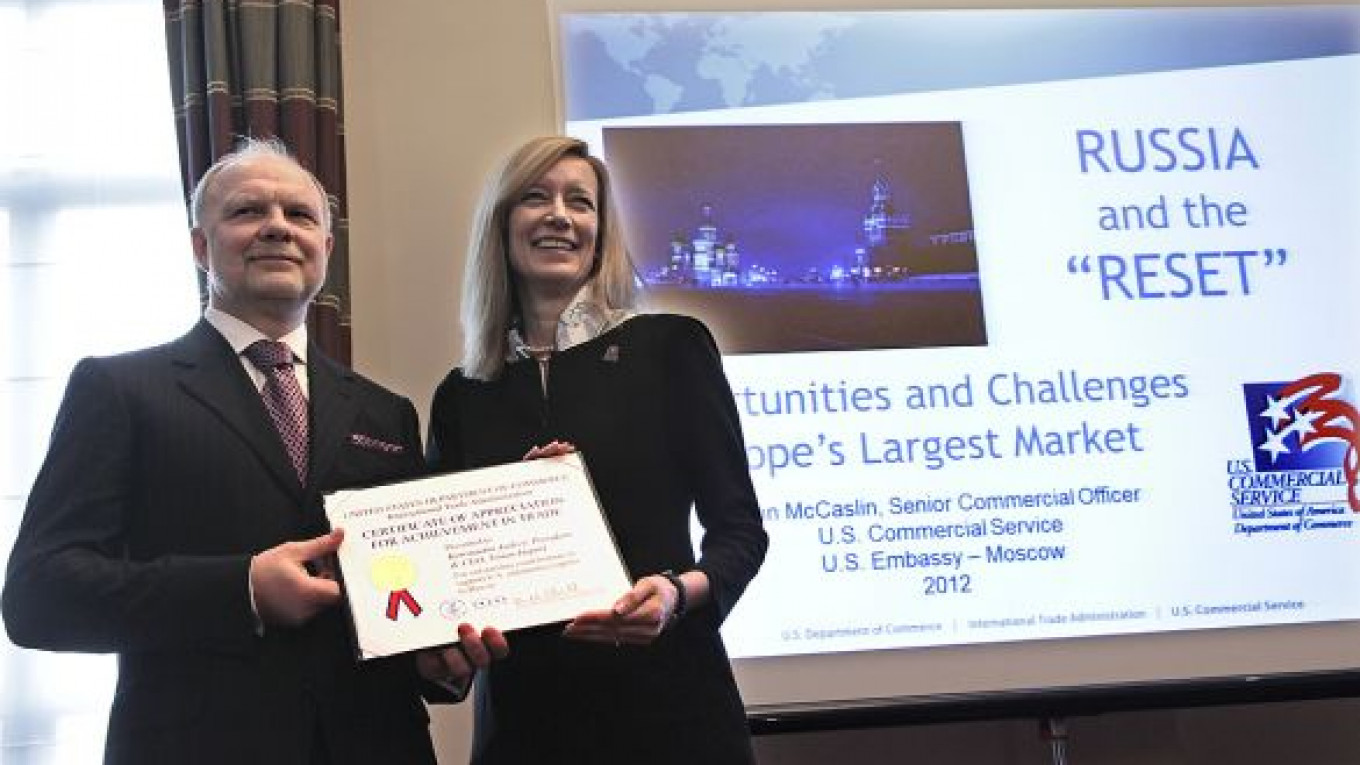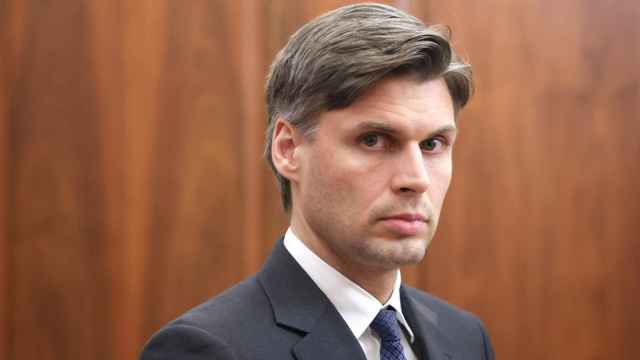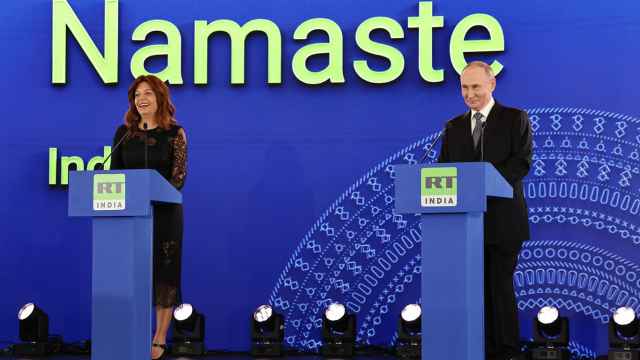The government's drive to make more automotive parts locally isn't thwarting a U.S. trade mission that seeks to expand American exports of these same products.
Led by Commerce Department Deputy Under Secretary Michelle O'Neill, executives from 13 American companies will explore the market and potential partners for five days starting Monday.
"Surely we appreciate that the Russian government has interest in growing domestic capacity and encouraging localization," O'Neill said in an interview. "But we also see significant opportunity for U.S. exports as the market grows."
Russian car ownership jumped to 244 cars per 1,000 people in 2010, an increase of about 70 percent since 2001, the Commerce Department said. O'Neill described that proportion as "relatively low."
The dense traffic in Moscow, however, may have produced a different impression on the mission members.
"As you can see from the traffic here, Russians do like automobiles," Andrew Somers, president of the American Chamber of Commerce, AmCham, said in a speech to the visiting executives Monday.
Car ownership is currently about 850 cars per 1,000 people in the United States.
Somers agreed that the Russian effort to develop local production of auto components leaves much room for imports.
"It's not an obstacle. It's just something you need to be aware of," he said.
The government encouraged more domestic production in the automotive industry in 2005 by launching a program that reduced import duties on auto parts for foreign companies that produced at least 25,000 cars per year in Russia and used at least 30 percent local content.
The requirements to qualify for the lower import duties increased last year. Carmakers that signed up for the new agreements need to produce 350,000 cars annually and use 60 percent local content.
However, Russia is obliged to end this program by 2018 under the terms of its accession to the WTO.
Russia last year ranked as the world's 12-th largest manufacturer of vehicles, according to the Paris-based International Organization of Motor Vehicle Manufacturers.
The mission members seek to sell to both domestic Russian car manufacturers, such as GAZ and AvtoVAZ, and their foreign rivals and partners that have established production in the country, O'Neill said.
The effort comes as trade between Russia and the United States is picking up amid President Barack Obama's 'reset' policy.
Russia moved up to No. 31 on the list of America's biggest trade partners last year from No. 37 the year before. It could climb higher, O'Neill said, pointing to Russia's top ranking among the largest emerging economies in terms of per capita income.
"To me, that's an indicator of untapped potential," she said.
She was referring to the group of emerging economies known as BRICS that also comprises Brazil, India, China and South Africa.
O'Neill said another U.S. trade mission, with a focus on energy efficiency, will arrive in the country in June. So far, about 20 U.S. companies expressed interest in joining that trip, she said.
U.S. Commerce Secretary John Bryson is scheduled to attend the St. Petersburg International Economic Forum later that month.
In yet another sign that commercial ties are gaining momentum, one more trade mission is at the planning stage for early 2013, O'Neill said. It will target exports of medical devices and pharmaceuticals, she said.
The previous trade mission took place in October 2010. It brought U.S. aerospace industry executives from about 10 companies to the country and resulted in $8 million to $10 million in export sales, O'Neill said.
"The number continues to grow and our expectation is for similar success in this mission," she said.
AmCham's Somers also updated the mission on perceived negative sentiments to the United States that appeared in recent news coverage during the Russian elections.
"There's no anti-Americanism here. Russians greatly respect American technology," he said. "They want your expertise, and they like you."
O'Neill sounded the same note, saying her experience working with Russians failed to reveal any hard feelings.
"No one's ever expressed to me any anti-Americanism on any of my meetings," she said. "In fact, it's been quite the contrary."
A Message from The Moscow Times:
Dear readers,
We are facing unprecedented challenges. Russia's Prosecutor General's Office has designated The Moscow Times as an "undesirable" organization, criminalizing our work and putting our staff at risk of prosecution. This follows our earlier unjust labeling as a "foreign agent."
These actions are direct attempts to silence independent journalism in Russia. The authorities claim our work "discredits the decisions of the Russian leadership." We see things differently: we strive to provide accurate, unbiased reporting on Russia.
We, the journalists of The Moscow Times, refuse to be silenced. But to continue our work, we need your help.
Your support, no matter how small, makes a world of difference. If you can, please support us monthly starting from just $2. It's quick to set up, and every contribution makes a significant impact.
By supporting The Moscow Times, you're defending open, independent journalism in the face of repression. Thank you for standing with us.
Remind me later.






